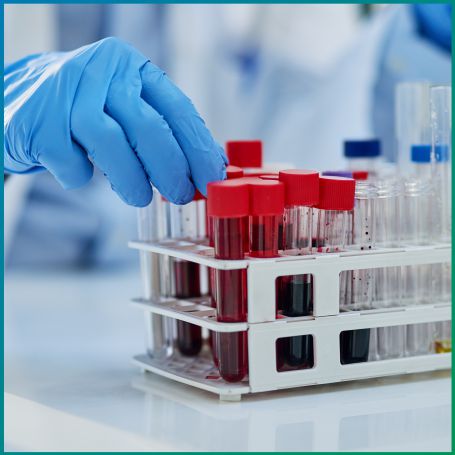
The ACE (Angiotensin Converting Enzyme) test measures the level of ACE in the blood, which plays an essential role in the body’s renin-angiotensin-aldosterone system (RAAS)


A complex hormone system that regulates blood pressure and fluid balance. High or low ACE levels can indicate specific medical conditions, particularly those involving inflammation or granulomas, such as sarcoidosis.
The ACE test measures the amount of angiotensin-converting enzyme in the blood. ACE is crucial for maintaining blood pressure by converting angiotensin I to angiotensin II, a powerful vasoconstrictor that helps regulate blood pressure and fluid balance within the renin-angiotensin system.
ACE inhibitors are a class of medications used to relax blood vessels, reducing blood pressure by inhibiting ACE activity in the RAAS system. This prevents angiotensin II production, helping manage hypertension, heart failure, and kidney disease. Common ACE inhibitors include Enalapril, Lisinopril, Ramipril, Captopril,Perindopril.
The ACE test is beneficial for individuals with symptoms indicating a potential inflammatory or granulomatous condition. Common indicators for this test include Persistent cough or breathing difficulties, often related to sarcoidosis, Lymph node swelling, skin rashes, or eye inflammation, History of autoimmune or inflammatory disorders.
Comprehensive Testing Solutions: Diagnopein in Pune utilizes advanced methodologies for accurate ACE testing and a wide array of inflammatory and autoimmune markers.
Qualified Specialists: Our team includes specialists trained in interpreting ACE results within the broader context of systemic inflammation and granulomatous diseases.
Patient-Focused Approach: Diagnopein emphasizes personalized care, offering consultations and follow-up services to support treatment decisions based on ACE test outcomes.
Timely Reporting: Our laboratory ensures efficient processing, delivering results within a timely frame to help you make informed health decisions.
High ACE levels often indicate an inflammatory condition, such as sarcoidosis, where excess ACE is produced as part of the immune response.
Typically, the ACE normal range is between 8-52 U/L. However, reference ranges can vary by laboratory.
A healthcare professional collects a blood sample to measure ACE levels. Fasting is not typically required for this test.
ACE inhibitors can lower ACE levels by blocking the enzyme’s activity, commonly used to manage hypertension and certain heart and kidney conditions.